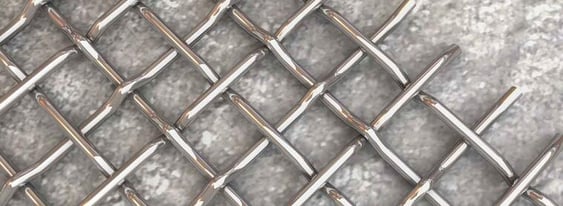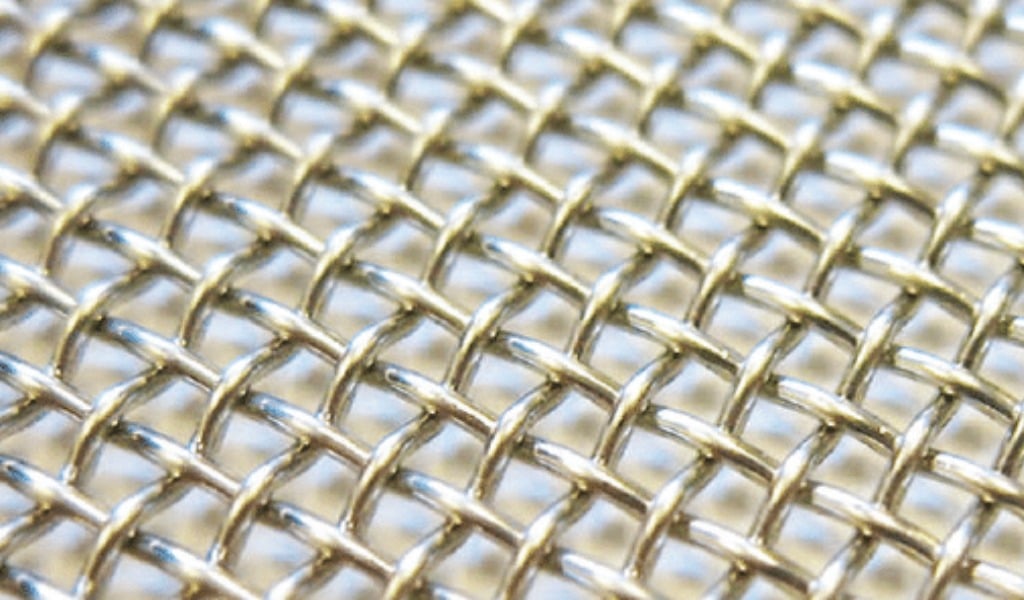How Woven Wire Mesh Is Used When Brewing Beer
Created thousands of years ago, beer is one of the most popular alcoholic beverages. Whether you are attending a happy hour with colleagues or tailgating for your favorite sports team, beer is typically a go-to beverage.
Now, through the years, the way beer is produced has changed to deliver a more desirable experience for customers. One significant element that has been added to the beer brewing proces is the implementation of materials like woven wire mesh.
That said, what purpose does woven wire mesh serve when brewing beer?
W.S. Tyler has been a prominent member of the wire mesh industry for over 150 years and is here to help build your confidence in your products. We do so by helping you understand how you can leverage the capabilities of woven wire mesh to improve your operation.
And with that, this article was written to establish woven wire mesh's role in the beer brewing process. We will cover:
- A brief overview of the beer brewing process
- A definition of woven wire mesh
- Insight into how woven wire mesh benefits the beer brewing process
- The factors that control the cost of woven wire mesh
How Is Beer Made?
The beer brewing process begins by combining water with various grains, such as commonly used malt. This mixture will then be agitated for approximately two hours.
The liquid solution, known as wort, is then extracted from the mixing tank and transferred to a boiling station. At this point, the malt tusks are extracted from the wort, and the liquid is transferred to a fermentation tank.
It's at this point in which hops is added to the wort. Hopps is the ingredient that gives beer its iconic smell and taste.
Yeast is now introduced to the mixture to initiate the fermentation process. During fermentation, the mixture is heated to a very specific temperature for anywhere from one week up to 10 days.
Once the fermentation process is complete, the beer is aged. After a few weeks of aging, the beer is transferred to bottling tanks, bottled, then pasteurized.
What Is Woven Wire Mesh?

Woven wire mesh is best defined as a series of individual metallic wires subjected to a centuries-old weaving technique. Once woven, the interlaced wires form pore openings that are both rigid and precise.
What makes woven wire mesh particularly unique is that the weaving process can be altered to create dozens of weave patterns. To that end, parameters such as the opening size, size, wire diameter, shape, alloy, and various value-added services can be customized to accommodate your exact needs.
How Does Woven Wire Mesh Benefit the Beer Brewing Process?
There are several instances in which the beer must be filtered throughout the process of brewing beer. In fact, there are three points of filtration when brewing beer.
The first instance occurs while the wort is extracted and transferred to the boiling station. The purpose of this filtration process is to separate solid debris, known as draft, from the liquid mixture.
The second instance occurs after the extraction process, and the wort is transferred to filtration tanks. This filtration step occurs to remove any malt husks from the wort.
The final instance of filtration occurs right before being bottled. The purpose of this filtration step is to rid the wort of its cloudiness, leaving the clear, golden profile that is synonymous with the beverage.
But how does woven wire mesh fit this process?
Well, woven wire mesh is known for being an extremely open product. This means it provides superior filtration surface area when compared to other filter media such as perforated plate and expanded wire.
Additionally, its open profile, alongside its metallic makeup, allows woven wire mesh filters to be backflushed and cleaned with ease. This, on top of its sheer durability, means woven wire mesh filters can purify beer for extended periods without the need for replacement.
It should also be noted that, while woven wire mesh is typically woven from stainless steel, serval alloys can be used to fabricate wire mesh filters. This helps to ensure your wire mesh successfully filters out solid despite the temperature and corrosive elements it is subjected to.
Put simply, woven wire mesh can be applied as a customized filter cloth with the ability to rid your beer of unwanted debris, such as molt husk and residual yeast. This, in turn, helps you create a brew that is safe and enjoyable for customers to enjoy.
How Much Does Woven Wire Mesh Cost?
Woven wire mesh can be purchased in two ways: in rolls or as fabricated components. Now, depending on how you purchase your mesh, you should expect different factors to dictate the cost.
When purchasing woven wire mesh in rolls, the following factors will impact the cost:
- Mesh specifications
- Required value-added services
- Quantity
- Roll length
- Roll width
- Specific complacency (i.e., DFARS)
On the other hand, when woven wire mesh is purchased as fabricated components, the price will be determined by the following factors:
- Size
- Shape
- Quantity
- Required value-added services
- Mesh specifications
- Layer configuration
- Labor
Now, as woven wire mesh is used as a filter medium when brewing beer, you must understand that filter cloth weaves tend to cost more than standard square weaves. This is because filter cloth weaves require more labor and attention during the weaving process.
Having said that, square mesh can be used to provide accurate filtration. Filter cloth weaves do, however, provide more beneficial qualities, such as improved throughput.
Scientifically Calculate How Woven Wire Mesh Will Perform
Beer brewing is an ancient practice that has evolved significantly over the years. For example, implementing filter media, such as woven wire mesh, allows brewers to remove unwanted contaminants and particles and provide customers with a more desirable experience.
Now, while woven wire mesh offers a number of beneficial filtration qualities, it may not deliver the performance your operation needs. To make the best possible decision for your organization, it is critical that you gain insight into how different mesh speciation will perform when introduced to your brewing process.
As a prominent woven wire mesh manufacturer with 150 years of experience, W.S. Tyler strives to use the knowledge within our four walls to remove filtration-related roadblocks from the beer brewing process. This, in turn, will allow brewers to reallocate more time towards refining other aspects of the process and improving the products they provide customers.
Read the following article to learn how you can get a better idea of how woven wire mesh will perform as a filter media when brewing beer:
About Ronnie Brown
Ronnie is the Content Writer for W.S. Tyler and has four years of experience as a professional writer. He strives to expand his knowledge on all things particle analysis and woven wire mesh to leverage his exceptional writing and graphic design skills, creating a one-of-a-kind experience for customers.




